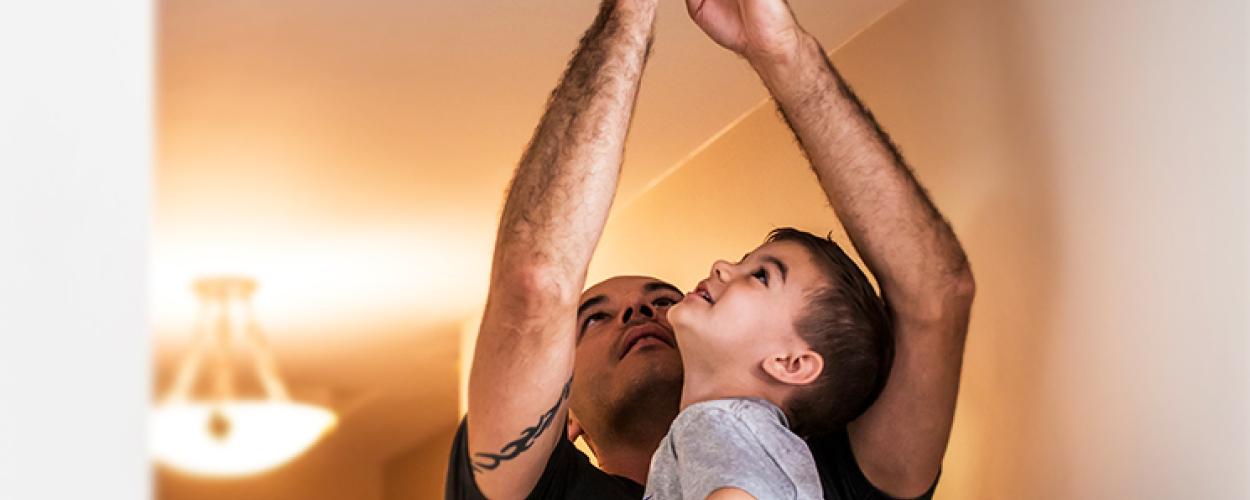
Carbon monoxide is an invisible, odourless and deadly gas. Carbon monoxide detectors detect carbon monoxide gas in your home, which is the result of natural gas combustion from gas fireplaces, furnaces, hot water heaters and dryers. Older, malfunctioning and improperly installed gas burning appliances can fill your home with carbon monoxide, causing flu-like symptoms. Higher doses can lead to unconsciousness or even death.
Put carbon monoxide detectors near all sleeping areas.
Most detectors have a lifespan of approximately five years but make sure to check your owner’s manual for your detector’s lifespan or look for an expiration date on the unit. Like smoke alarms, carbon monoxide detectors can be hardwired in but will also require batteries that will likely need to be replaced periodically. When the battery is low or the unit is at its end of life, it will chirp. Hardware stores carry carbon monoxide detectors.
Furnace Leaking Carbon Monoxide
If your carbon monoxide detector keeps sounding and you know you have an older furnace, it is likely that it has cracked and is leaking carbon monoxide. This is serious! You will need to shut your furnace down and repair or replace it immediately.
If your carbon monoxide detector activates, call 9-1-1 and immediately remove everyone from your house.
Safety tips to protect yourself and your loved ones:
- Monitor your health and the health of your family. Exposure to CO can cause flu-like symptoms such as headaches, nausea, dizziness, as well as confusion, drowsiness, loss of consciousness and death.
- If your CO alarm sounds, and you or other occupants are suffering from symptoms of CO poisoning, get everyone out of the home immediately and call 9-1-1.
- Read the manufacturer’s instructions for your CO alarms to know the difference between the sound of an alarm and the sound of a low battery or end of life warning.
- The CO alarm sounds different than a smoke alarm. Test both alarms monthly by pressing the test button and make sure everyone in the home knows the difference between the two alarm sounds. It is highly recommended to replace the batteries in each twice a year.
- Know the sources of carbon monoxide and how you can prevent CO build up in your home. CO is NOT natural gas.
- Prevent build-up of carbon monoxide in your home. Get an annual inspection of fuel-burning appliances by a registered contractor. Check for blocked vents as well!
- If you live in rental housing, talk with your landlord about installing a CO alarm or install one yourself.
- Ensure outside vents for all fuel-burning appliances are clear of debris, snow and ice.
- Never use barbecues, grills or portable fuel-fired heaters/generators inside.
- Replace entire units according to manufacturer’s instructions.
